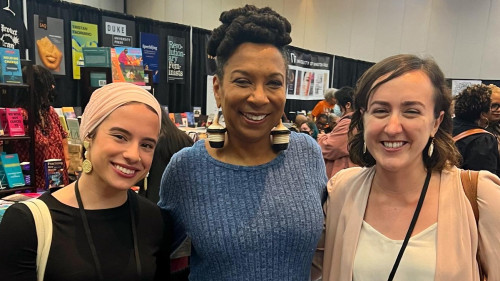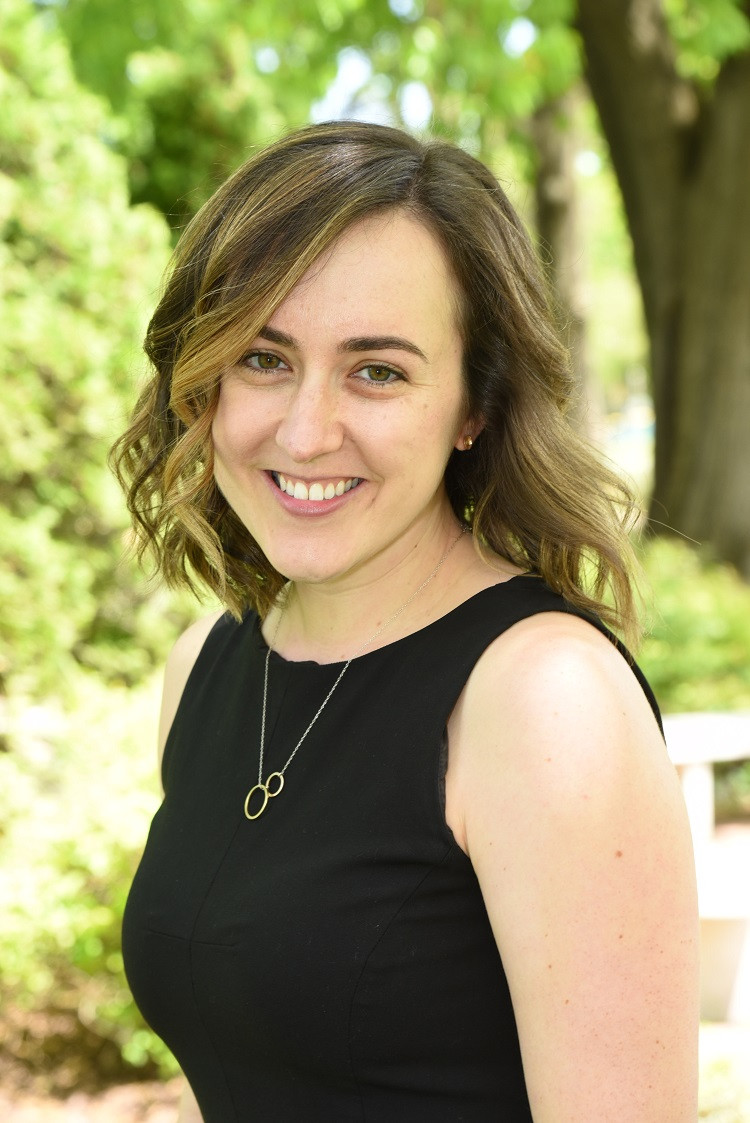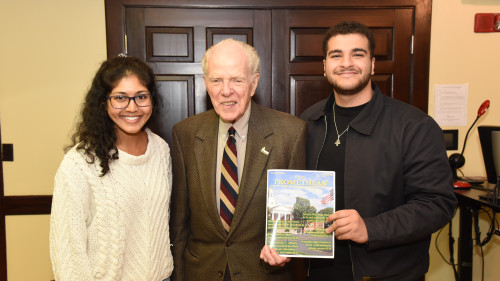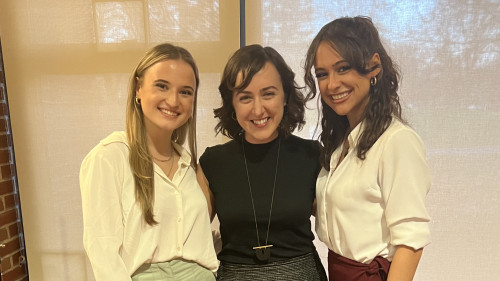

Looking for some racy reading material? Check out…Victorian literature on classical music performance.
Yes, it’s a genre, and it’s surprisingly steamy stuff that lifts the curtain on thought-provoking notions of gender, eroticism and sexuality. Shannon Draucker, Ph.D. has just received a highly competitive National Endowment for the Humanities (NEH) grant to revise her research on the subject.
Draucker, assistant professor of English, was awarded $6,000 from the NEH and will work this summer to revise and reframe her doctoral dissertation into a book about how 19th century understandings of musical science shaped representations of gender and sexuality in Victorian British literature.
“I’m asking that we rethink both the Victorians and classical music,” she said. “We need to re-examine common understandings of the Victorians as prudish or repressed, as well as those about classical music as an exclusively conservative art form and something we listen to without being affected emotionally and physically.”
In an era when concepts such as sexuality and female empowerment were not acknowledged in polite society, some British literature of 1837-1901 boldly addresses it through the lens of musical performance – from the viewpoints of both the musician and the audience.
“The concert hall can be just as sexy a space as the bedroom, and that was very much the case for the Victorians,” she said. “They went to the orchestra to hear music that resonated in their bodies. We tend to think about sexual desire as the pinnacle of erotic experience. But I’m arguing that these Victorians writers used music to explore eroticism in different and compelling ways.”
Draucker said she reads “bizarre novels” that were popular in the 19th century but are rarely read in the 21st. Victorian authors explored desire, pleasure, gender and sexuality in such works as the 19th century “lady violinist” novels, about women who (gasp) played deeply sensual music…in public.
“The lady violinist is a risqué figure because she is performing on the stage, showing her arm muscles and arousing intense bodily responses in her listeners.”
In Bertha Thomas’ The Violin-Player (1880), a talented female violinist dresses as a man to gain admittance to a top music conservatory. Once everyone recognizes her extraordinary musical gifts, she reveals herself to be a woman. By that point, her talent has been acknowledged as so impressive she is welcomed to the public musical sphere.
“Many novels at that time were about women following the marriage plot, but the heroine of The Violin-Player follows a professional musician plot. She describes her violin as her ‘life-companion,’ and she experiences her greatest moments of power and pleasure while on the concert hall stage.”
Another genre Draucker explores is “musical ghost stories,” which feature spirits who use music to haunt the protagonists. Vernon Lee’s A Wicked Voice (1890) is about a male composer haunted by the ghost of an 18th century male singer.
“He is haunted in ways that are pretty explicitly erotic,” she said. “It opens up interesting scientific and physiological questions about what music is and what it does to us. These texts also explore forms of intimacy that otherwise might not have been discussed openly at the time.”
Draucker’s interest in literary works with a musical theme is not happenstance. In addition to her academic work in literature and gender studies, Draucker is also a classically trained clarinetist. She majored in music and English as an undergrad at Dartmouth, choosing a liberal arts education over attending a music conservatory. These twin passions intertwine to inspire her academic work.
She addresses Victorian musical genres in her classes, in addition to more canonical British works by authors like Dickens and Eliot.
“Dr. Draucker is an innovative, energetic, and dynamic teacher who prioritizes both the intellectual development and the personal well-being of her students,” said Keith Wilhite, Ph.D., professor of English and chair of the department. “Her enthusiasm for teaching is matched by an equally ambitious –– and frankly enviable –– publication record across a variety of fields, including Victorian literature, gender and sexuality studies, and critical pedagogy. She personifies the liberal arts model of the teacher-scholar.”

